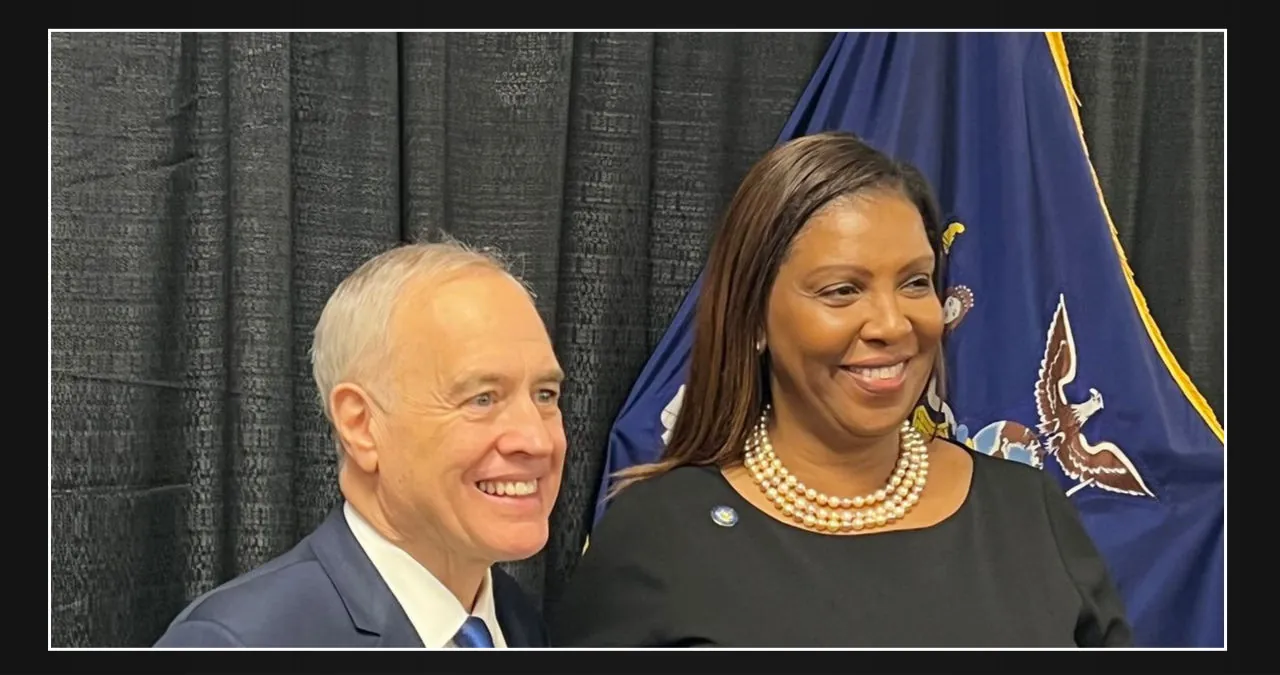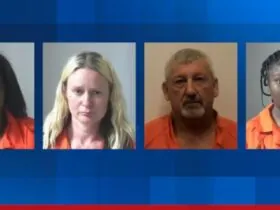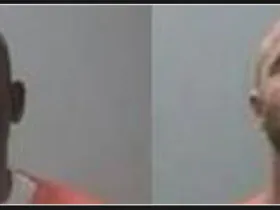Síle Moloney wrote this article.
Deed theft, as defined by the OAG, refers to the act of acquiring the title or deed to someone’s home without their knowledge or consent. This deceptive practice particularly affects elderly homeowners and homeowners of color, with a notable impact on New Yorkers residing in gentrifying neighborhoods where property values have significantly surged over time.
The legislation, co-authored by James and sponsored by Brooklyn’s State Sen. Zellnor Myrie and Bronx Assembly Member Landon C. Dais, is aimed at addressing deed theft as a criminal offense. It includes amendments to the statute of limitations, offering homeowners and prosecutors more time to pursue justice. Additionally, the legislation grants the Office of the Attorney General (OAG) the authority to prosecute cases of deed theft.
If you think you’ve fallen prey to deed theft in New York, don’t hesitate to reach out to the OAG. You can contact them by calling 1(800) 771-7755, sending an email to deedtheft@ag.ny.gov, or simply filing a confidential complaint.
Dais, who represents the Bronx neighborhoods of Mt. Hope, Highbridge, and Morris Heights, expressed his support for the new law. He emphasized that his main priority as the elected representative of the 77th Assembly District is to protect the residents. This commitment was a key driving force behind his sponsorship of the Deed Theft Bill, in collaboration with State Senator Myrie and Attorney General James.
“This groundbreaking legislation will safeguard homeowners in my district and throughout the state of New York from unscrupulous individuals who specifically prey on senior citizens who own homes. Our bill will equip the Attorney General and district attorneys across the state with a robust legal mechanism to hold these scammers accountable for exploiting homeowners in our state. I am grateful to my colleagues in the Assembly and Senate for the overwhelmingly bipartisan support, to the Attorney General for prioritizing this issue, and to the Governor for acknowledging and enacting this momentous law that will ensure the protection of homeowners in our state.”
According to officials from the OAG, the previous law in New York State did not consider deed theft as a crime. However, the latest law has rectified this by amending the penal law, classifying deed theft as a form of grand larceny. Additionally, the statute of limitations has been extended to allow for more time to identify and investigate cases. Moreover, the OAG has been granted the original criminal jurisdiction to prosecute deed theft crimes in collaboration with district attorneys throughout the state. The implementation of these new criminal provisions is expected to enhance enforcement opportunities and ensure that New Yorkers can remain in their homes.
-
- establish deed theft as a crime (grand larceny) and can be prosecuted as such, as follows:
- Grand Larceny in the First Degree, a Class B Felony applies to deed theft of a residential real property that is occupied as a home by at least one person and is a home that is owned by someone who is elderly, incapacitated, or physically disabled, or deed theft of three or more residential real properties, regardless of monetary value.
- Grand Larceny in the Second Degree, a Class C Felony applies to deed theft of one residential property, one commercial mixed-use property with at least one residential unit, or two or more commercial properties, regardless of monetary value.
- Grand Larceny in the Third Degree, a Class D Felony applies to deed theft of one commercial real property, regardless of monetary value.
- establish deed theft as a crime (grand larceny) and can be prosecuted as such, as follows:
-
- Grand Larceny in the First Degree, a Class B Felony applies to deed theft of a residential real property that is occupied as a home by at least one person and is a home that is owned by someone who is elderly, incapacitated, or physically disabled, or deed theft of three or more residential real properties, regardless of monetary value.
- Grand Larceny in the Second Degree, a Class C Felony applies to deed theft of one residential property, one commercial mixed-use property with at least one residential unit, or two or more commercial properties, regardless of monetary value.
- Grand Larceny in the Third Degree, a Class D Felony applies to deed theft of one commercial real property, regardless of monetary value.
-
- Extend the Statute of Limitations: This new law changes the statute of limitations to prosecute deed theft crimes so that prosecution must begin within five years of the theft or within two years after the rightful homeowner realizes their deed has been stolen, whichever occurs later.
-
- Grant OAG Original Criminal Jurisdiction: This new law grants OAG concurrent original jurisdiction to prosecute deed theft crimes alongside district attorneys throughout the state.
Officials have stated that in the previous year, James backed legislation introduced by State Sen. Brian Kavanagh from Manhattan and Assembly Member Helene Weinstein from Brooklyn. The purpose of this legislation was to strengthen protections against civil deed theft. The new law grants additional authority to the attorney general and local district attorneys, enabling them to temporarily halt eviction and ownership dispute proceedings that are linked to deed theft. Furthermore, the legislation broadens the range of crimes that prosecutors can use to invalidate fraudulent sale and loan documents. This important law came into effect in December 2023.
In February 2021, James announced a grant of $800,000, funded by OAG settlements, to the New York City Department of Housing Preservation and Development (HPD) and the Center for New York City Neighborhoods. The grant is part of a program that aims to raise awareness about deed theft in vulnerable neighborhoods.
In January 2020, James launched the Protect our Homes initiative and announced the formation of an interagency law enforcement task force to address deed theft and other forms of real estate fraud.
The Homeowner Protection Program (HOPP) is a statewide initiative in New York that provides free housing counseling and legal assistance to homeowners. Supported by the Office of the Attorney General (OAG), HOPP consists of a network of housing counselors and legal services providers. If you are a homeowner in need of assistance, you can reach out to HOPP online or by calling 1 (855) 466-3456 to access the help you need.







Leave a Reply